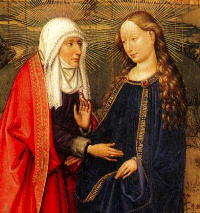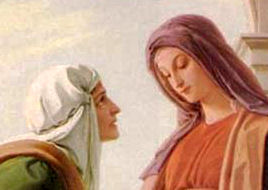Davenport, Iowa, parish opens wide ‘window of mercy’ to neighbors in need
A parish became a disaster relief hub over the Memorial Day weekend, and volunteers were ready to respond, as staff told OSV News they have been operating “a field hospital for the works of mercy” since the late 1980s.
St. Anthony Catholic Church in Davenport, Iowa, served as a Red Cross station after a nearby six-story apartment building partially collapsed May 28. Nine occupants have been rescued as of May 31, so far, with two possibly trapped amid the rubble and three others still unaccounted for. More than a dozen fled the wreckage on their own. No deaths have yet been reported as recovery efforts continue amid concerns the remains of the building may fall at any moment.
The cause of the collapse has not yet been determined, but residents had complained of numerous plumbing and electrical issues at the structure, which as the former Davenport Hotel is listed on the National Register of Historic Places.
Father Rudolph Juarez, pastor of St. Anthony, told OSV News May 30 that Eucharistic adoration was taking place at the church when the apartment building crumbled — and some of those affected were “regulars” at a longtime parish outreach known as the “McAnthony Window.”
The ministry — the name of which evokes the drive-through service of the McDonald’s restaurant chain — provides meals five days per week, Monday through Friday, serving up more than 28,100 hot platters last year alone. More than 54,750 people were fed by the outreach’s food pantry, with volunteers also giving out close to 25,000 bus tokens, “countless bikes, clothing, toiletries and acts of love,” said St. Anthony pastoral associate John Cooper.
Window volunteers delivered water and sandwiches to rescue workers at the collapsed building, and “many of the residents” were familiar faces at the ministry “as they were living on the margins,” Cooper told OSV News.
“Our response was just like another day of helping people in distress at McAnthony Window,” he said.
Father Juarez agreed, saying that parishioners saw their efforts as “an extension of the work we were already doing,” with many “coming back on the Memorial Day holiday to help” as well.
Both the window and the parish doors have long been open to the neighborhood, Father Juarez and Cooper said.
The McAnthony Window began in 1987, when then-pastor Father James P. Conroy and Sister Ludmilla Benda, a Religious Sister of Mercy, began distributing meals each morning through a rectory window. Father Conroy eventually installed a sliding window to make the handoffs easier.
In 2018, volunteers began “developing a ministry of presence” by coming outside and spending time with patrons as they ate, said Cooper.
“We started talking to people and getting to know them,” he said. “We started to see what (else) they needed.”
Those conversations led to adding “personal finance classes, job coaching, men and women’s support groups and AA meetings” to the lineup, Cooper said.
Learning that many clients had been incarcerated at points, a religious sister specializing in prison ministry joined the team, he said.
The ministry also feeds the soul: a wooden kiosk, named for former St. Anthony pastor Father Apollinaire Mpanda, stocks rosaries and religious books for the taking, with a box for prayer intentions.
Funded by donations and fueled by the energy of parishioners, the outreach is “a labor of love that keeps on going and going,” said Cooper.
Even if supplies were uncertain, the parish would keep the McAnthony Window open, he said, adding that any parish could do the same.
“The parishioners just have to say, ‘We’re going to do this; we’re going to make it happen,'” Cooper said. “Just like the Apostles did at Pentecost — they didn’t say, ‘How much money do we have?’ They just walked out (of the Upper Room) and ministered.”





 The Mother of God considered no such thing. Elizabeth was going to have a child, too, and although Mary's own child was God, she could not forget Elizabeth's need—almost incredible to us, but characteristic of her.
The Mother of God considered no such thing. Elizabeth was going to have a child, too, and although Mary's own child was God, she could not forget Elizabeth's need—almost incredible to us, but characteristic of her.